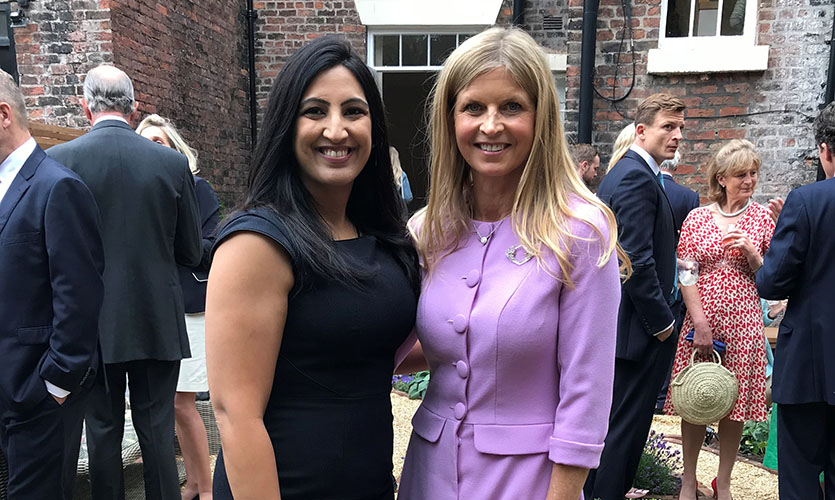Dr Pooja Saini

Dr Pooja Saini is a Reader in Suicide and Self-Harm Prevention in the School of Psychology. For more than a decade, her dedication to researching suicide has taken her out of the lecture theatre and into the field where the ‘talking down’ occurs, and where knowing what works and what doesn’t truly counts.
Instrumental in the founding and running of men’s suicide charity James’s Place, Pooja has seen first-hand the devastation of the families and loved-ones of those who left us far too early.
“Suicide is a major issue for society. My question has always been: ‘How can we do better?’” Born in Preston and a psychologist by training, Pooja started asking such questions when she completed her PhD at The University of Manchester on the role of primary care in suicide prevention.
“I was struck by the number of young and middle-aged men ending their lives and how health services were failing to provide a safety net. So, I started looking at the records – case notes, Coroners’ reports, GP referral data – and despite there being touchpoints where these men attempted to seek help, very little of it was making a difference.”
She was particularly struck by people going to A&E, often as a last resort, almost always coming away no better off. One such man was James Wentworth-Stanley, who took his own life aged 21 and whose mother Claire has been on a mission ever since to prevent other families going through the same pain.
Claire’s lived experience coupled with Pooja’s data and insights, sent them on the same journey and the creation of James’ Place – the first safe, accessible service for suicidal men in community settings. First in Liverpool (2018), then in London (2022) and in December 2023, opening a new centre in Newcastle.
“We needed something new in primary care. We knew men were asking for help before dying by suicide, they just didn’t have the right place to go,” says Pooja, who conducts the scientific work for the charity.
For Pooja, academia is not about ivory towers but rather, engaging with the public, working in communities to find out what they need and how knowledge and expertise can help.
“Universities need to understand that the community won’t always come to them, they’re going to have to step outside and talk to people and LJMU is very good at doing just that.”
– Dr Pooja Saini

Despite coming from an affluent background, Pooja naturally relates to people from all walks of life and loves nothing better than to go out to a community centre or a drop-in clinic and speak to people on the ground.
“I think it comes from my background in a textile family in central Manchester; clothing was like a big family, and class and status never came into anything. Everyone needed clothes and everyone was the same.”
With her work on men’s suicide ongoing, Pooja is also asking tough questions about women’s mental health and support. With Dr Louise Newson, a GP and Menopause Specialist, she recently started looking into the cases of women aged 40-49 with suicidal thoughts and the role that hormonal changes in the menopause may play in that.
